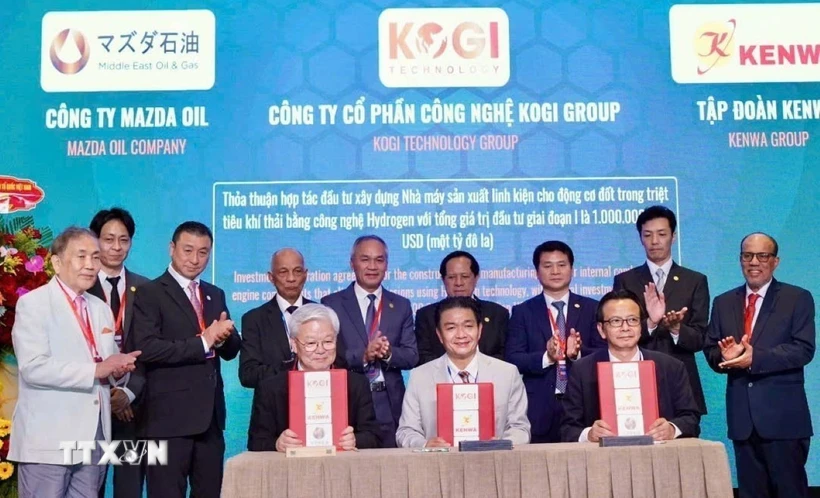HCMC – Japanese and Middle Eastern investors have signed a US$6-billion deal to develop energy infrastructure and green manufacturing projects in HCMC.
On May 19, KOGI Group, Japan’s Mazda Oil Corporation, and several partners from the Middle East formalized a strategic investment package aimed at building energy infrastructure and promoting green industry in HCMC, reported the Vietnam News Agency.
The centerpiece of the deal includes a US$5-billion oil refinery and storage complex with an annual capacity of 50 million tons, which would be the largest of its kind in Southeast Asia. The facility is expected to support energy security in Vietnam and the region.
A second project involves a US$1-billion plant to produce components for internal combustion engines using hydrogen technology to eliminate emissions. This initiative aligns with Vietnam’s goals for cleaner transportation and green industry development.
The investors also plan to build a cross-border oil pipeline connecting Vung Ang Port in central Vietnam to Vientiane, Laos, with an estimated cost of US$500-700 million.
KOGI Chairman Nguyen Hong Hue said the deal followed Prime Minister Pham Minh Chinh’s visit to the Middle East in October 2024, which helped accelerate negotiations with foreign partners.
Mazda Oil advisor Koki Kobayashi said the company is seeking to expand investment in Vietnam, particularly in the energy sector. He called for further improvements in Vietnam’s administrative procedures and investment environment to attract more foreign companies.
Speaking about the hydrogen technology project, Nguyen Hong Hue stressed the importance of Japan’s technological support. He said leveraging Japan’s expertise in combustion engines would help Vietnam move closer to green mobility solutions and environmental sustainability
He cited two recent resolutions from the Politburo—Resolution 57 on science and digital transformation and Resolution 68 on private sector development—as key policy drivers behind the partnership with foreign firms.
The projects will begin once they receive regulatory approval.









